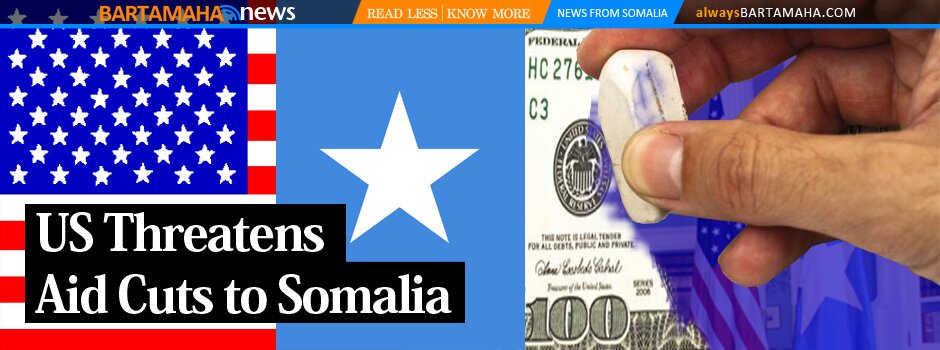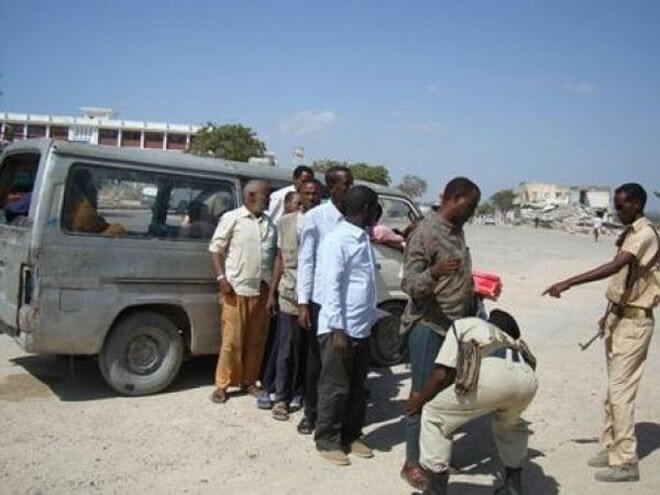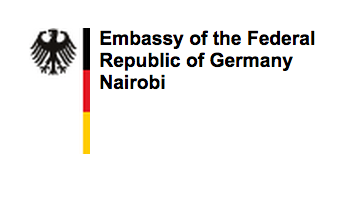Documentary asks why young men left for Somalia
 There’s a poignant scene in Fathia Absie’s riveting documentary, “Broken Dreams,” that underlines the anguish and anger caused by the exodus of 20 or more young Minneapolis men of Somali descent two years ago.
There’s a poignant scene in Fathia Absie’s riveting documentary, “Broken Dreams,” that underlines the anguish and anger caused by the exodus of 20 or more young Minneapolis men of Somali descent two years ago.
“He used to take me anywhere, hold my hand,” Fadumo Elmi said of her grandson, Mohamud Hassan. “Now, when I go see my doctors, they ask me, ‘Where is Mohamud Hassan?’ I tell them Mohamud is gone … I tell them something evil took him to Mogadishu, and he’s gone.”
Hassan, then 19 and an engineering student, was among the Somali youths from the Twin Cities who left, many on the eve of the 2008 presidential elections. They resurfaced in Somalia, purportedly to help their countrymen defend against invading troops from Ethiopia.
The leading theory of U.S. investigators: They were recruited here and lured there by supporters of al-Shabaab, a terrorist group with reported ties to al-Qaida. Al-Shabaab followers want to establish an Islamist regime and identity over divisive clan loyalties in Somalia. Nationalistic pride was used as a ruse, some community leaders and American law enforcement officials agree, to get the passport-toting American youths to a place they left as babies or toddlers and fight for a cause they knew little about.
An early traveler and al-Shabaab fighter, Shirwa Ahmed, a 2000 Roosevelt High School grad, blew up himself and 22 others in an Oct. 29, 2008, suicide bombing. Five others who left are known dead; the rest are presumed.
dead or their fates are unknown. Absie’s two-hour documentary, which has its public debut Saturday at Minneapolis South High School, is a must-see not only for the local Somali community, the nation’s largest, but also for those of us who know little about it or the impact the youths’ departures continue to have.
The film has been Absie’s sole work and an intensely costly and personal crusade for nearly two years. A former social worker and freelance journalist who left Somalia in 1988 — three years before civil war broke out — Absie, 38, grew up worshipping America from afar.
“This was the place where I felt I belonged,” said Absie, whose attraction to this country was fueled by the magazines her college-educated American uncle brought back with him. “It was like I was a female or a male trapped in the wrong body. I always felt in my heart that this (America) was my country.”
STONEWALLED AT FIRST
Absie, who has lived in New Orleans, Los Angeles, Ohio and Virginia, later was able to sponsor her parents and other family members who fled the civil war for refugee camps in Kenya.
She learned of the Minneapolis youth exodus while she was a journalist covering Somali diaspora issues for the Somali Service of the Voice of America. (An estimated 1 million Somali refugees and kin live outside Somalia.) She was stunned by the news.
“It was, to me, unbelievable,” said Absie, who spent $22,000 of her life savings to make the film. “It was a great struggle to get here for me. I thought about the thousands of Somalis who fled Somalia, traveled through deserts, held hostage and enslaved in the Sudan. Then to have these young men, the lucky ones who came to of all places the USA, to leave it to go back?”

Fathia Absie
Absie initially hit a brick wall. Few would speak to her on camera. The traumatized community was not talking. Everything was hush-hush. The bitter tribal feuds transported from the old country still reigned supreme.
Little by little, she got people to open up.
Many in the Somali community knew of transitional president Sheik Sharif’s call to arms a few years ago, encouraging Somalis from every corner of the globe to return to drive out the Ethiopians. But many soon realized al-Shabaab was made up mostly of the armed guards of the Union of Islamic Courts once headed by Sharif.
Two who returned to the U.S., Abdifatah Yusuf Isse, 27, of Seattle and Salah Osman Ahmed, 28, of Brooklyn Park, were arrested and charged with aiding terrorists. Both reportedly are cooperating with the FBI.
“I believe most Somalis of the diaspora are realizing that these people were nothing but terrorists fighting for power,” Absie said of al-Shabaab.
 ‘CHILD HAS BEEN STOLEN’
‘CHILD HAS BEEN STOLEN’
Absie finally got two mothers to speak frankly about their sons and their strong belief that the recruitment took place covertly at Abubakar as-Saddique, the largest Somali mosque in Minneapolis. The mosque’s leaders deny wrongdoing, though they acknowledge many of the young men worshipped there.
“The American people treated us better than our own,” says Abayta Ahmed, mother of Jamal Sheikh Bana. “We were people that destroyed our own country, yet the American people still welcomed us with open arms.
“I know my son was brainwashed, because he didn’t even know anything about Somalia,” she added. “I took him out of Somalia when he was 1 year old.”
She learned of her son’s death after her husband, surfing the Internet for the latest news out of Somalia, came across a picture on the Internet of a dead body that was no doubt their son.
“That’s how I found out that he was dead,” the woman says, breaking into tears.
The mother of Burham Hassan, a 17-year-old Roosevelt High School senior when he left three years ago, joined others in the documentary in lambasting those in the community using Islam as a pawn for extremist views.
“What do they know about religion?” Zienab Bihie says. “I am not a scholar, but … this religion has been turned into something everybody can use however they like. I am the one whose child has been stolen. God bless his soul, he did not know anything about politics or land.”
Dr. Abdirahman D. Mohamed, chief of staff at the Axis medical center in Minneapolis, said it’s time for the American Somali community to look inside itself and cast off old loyalties and divisions.
“As Muslims in the U.S., we haven’t condemned the extremism that’s in our midst,” he said. “Parents need to instill in their young people that they are citizens of this country.”
FOCUS ON LIFE HERE
Absie’s film ends with reflections from mostly college-going local youths who, while understanding the situation in Somalia, consider America their country, a place where they can best help themselves as well as their community by graduating and pursuing careers.
As one student, identified as Burhaan Muhumud, put it: “We have no business going back. Somalia needs to help itself.”
Absie knows some in the community will like her film; others will hate it and question her motives.
But her conscience is clear. She wants Somalis themselves to talk publicly about issues that have long been swept under the rug. She wants the community to bury the past for the sake of children growing up here.
“They need to learn and appreciate that there is no other place like this on Earth,” Absie said.
Rubén Rosario can be reached at 651-228-5454 or at [email protected].
IF YOU GO
“Broken Dreams” will be shown at 7 p.m. Saturday at Minneapolis South High School, 3131 19th Ave. S. Admission is $15. For more information, call 612 644-0711.
ONLINE
To see a trailer of the documentary, Here
Comments
comments
 Calendar
Calendar






































